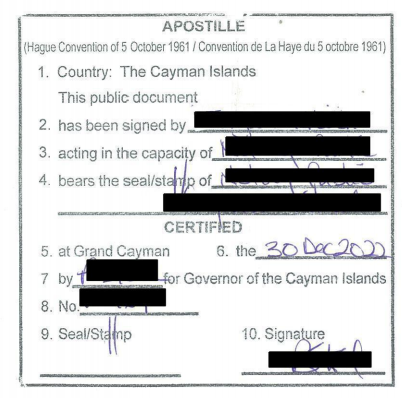Follow our WeChat account
Author: CHISPO ATTORNEYS AT
Date: 2023-11-17
China, after joining the "Convention Abolishing the Requirement of Legalization for Foreign Public Documents" on March 8, 2023, has implemented it on November 7, 2023.
The key change is that public documents from other countries now only require an additional certificate called an Apostille from the originating country. There is no longer a need for consular authentication from both that country and the Chinese consulate in the local jurisdiction.
1. Introduction to the "Convention Abolishing the Requirement of Legalization for Foreign Public Documents"
The "Convention Abolishing the Requirement of Legalization for Foreign Public Documents," commonly known as the "Hague Convention" or "Hague Apostille Convention," stands as a paramount international treaty within the framework of the Hague Conference on Private International Law. This convention boasts the highest number of contracting members, making it widely recognized and applied globally.
The Apostille process serves to authenticate signatures and validate the qualifications of institutions endorsing documents. Its primary objective is to eliminate the need for repetitive authentication by multiple government bodies when utilizing public documents internationally.
Under the provisions of the "Hague Apostille Convention," public documents exchanged between contracting states no longer necessitate consular authentication. This significant change is poised to substantially reduce both the time and economic expenditures associated with the international circulation of public documents. Based on available data, countries joining the "Hague Apostille Convention" have witnessed an average reduction of around 90% in processing time for document circulation between contracting states.
In the realm of judicial proceedings, China's accession to the "Hague Apostille Convention" is anticipated to provide great convenience to foreign entities, as well as relevant Chinese enterprises and individuals.
2. Impact of the "Hague Apostille Convention" on the Notarization and Authentication Procedures for Foreign Entities
In the context of foreign entities engaging in legal proceedings in China, it is imperative to furnish evidence of their legal standing and authorization. Given that these documents originate outside of China, the Chinese courts face a challenge in directly verifying their authenticity. Consequently, a notarization and authentication process, commonly referred to as "notarization + dual authentication," becomes necessary.
Under this procedure, the documents undergo the following steps: Initially, they are notarized by the relevant notary authority in the entity's home country. Subsequently, the local government, typically the foreign affairs department, validates the notarization's efficacy or the notary's qualifications. Finally, the Chinese consulate in the local jurisdiction authenticates either the local government's validation or the identity of the government official handling the process.
With the effective implementation of the "Hague Apostille Convention" on November 7, 2023, the aforementioned documentation process has been streamlined to just two steps. Firstly, entities need to obtain a notarized document or equivalent supporting documents adhering to the Apostille requirements from the local notary authority in their country. The second step involves submitting these documents to the foreign affairs department of the respective country or a designated entity to acquire the Apostille.
3. Apostille Examples
Example 1:

Example 2:

4. Countries That Can Apply for Hague Apostille
As of October 23, 2023, there are 125 contracting states to the Convention. Please refer to the Ministry of Foreign Affairs for the list of contracting countries in the "Convention Abolishing the Requirement of Legalization for Foreign Public Documents."
Additional Notes:
1. The Convention will become effective for Canada on January 11, 2024. Similarly, on June 5, 2024, the Convention will take effect for Rwanda.
2. The Convention does not apply between China and countries that do not recognize each other's sovereign status.
3. The "Convention" does not apply between China and India.